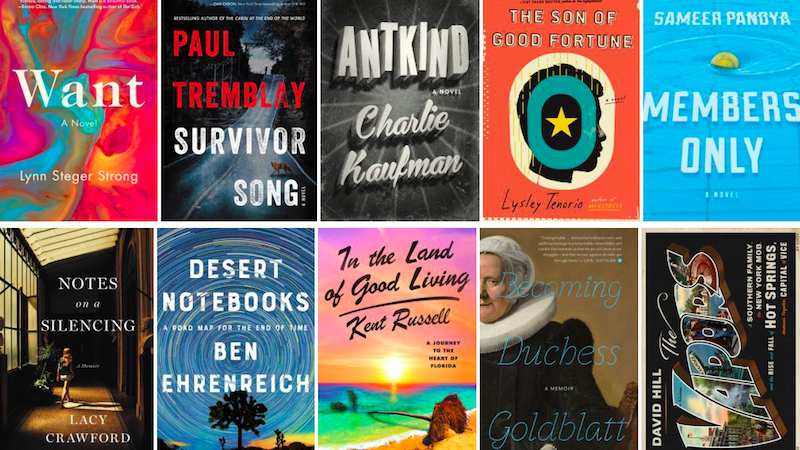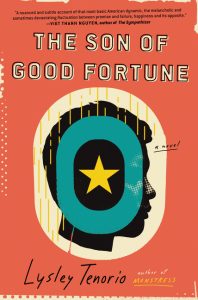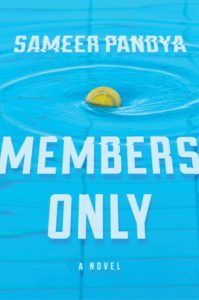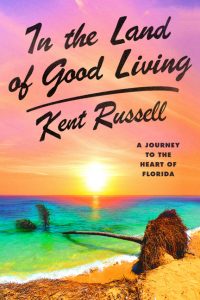
Lynn Steger Strong’s Want, Charlie Kaufman’s Antkind, Lacy Crawford’s Notes on a Silencing, and Ben Ehrenreich’s Desert Notebooks all feature among the Best Reviewed Books of the Week.
1. Want by Lynn Steger Strong
3 Rave • 5 Positive
“Want is so sharp about economic fragility and just how close to the edge people are—even with the seeming safeguard of middle-class jobs and good educations. The narrator’s voice is the great draw here: It’s tough, smart, semi-reliable, low-level angry. We’re mostly cooped up in her head throughout much of the novel, which is a fine and rich place to be, since the outside world isn’t all that compelling … Strong is not writing about the working poor; nor are her characters homeless or starving. Her narrator isn’t asking for pity—the novel wouldn’t work if she were. Instead, this is a story about mundane middle-class precariousness, about people who work a lot and owe even more. And it’s a story about wanting, always wanting, something else.”
–Maureen Corrigan (NPR)
Read an interview with Lynn Steger Strong here
2. Survivor Song by Paul Tremblay
3 Rave • 4 Positive
“Much of Tremblay’s previous fiction has been marked by a deliberate ambiguity regarding horrific or supernatural elements, but that is not the case here. The horrors of Survivor Song are presented clearly, directly and to visceral effect. Although the novel’s seeming prescience is largely accidental, it reflects a distinct—and distinctly political—point of view. Tremblay’s world is one in which help and medical resources are ‘stretched to the breaking point,’ exacerbated by ‘a myopic, sluggish bureaucracy’ and a president ‘woefully unprepared to make the rational, science-based decisions necessary.’ So, art and life continue to mirror one another. And horror fiction, as practiced by…Tremblay and a good many others, continues to serve as a bleak but appropriate vehicle for conveying the dangers and distortions of our increasingly incomprehensible age.”
–Bill Sheehan (The Washington Post)
3. Antkind by Charlie Kaufman
5 Rave • 2 Positive • 1 Pan
“Pompous, opinionated, self-conscious, self-loathing, B. is an astonishing creation: a volcano of ridiculous opinions and absurd neuroses, a balding, bearded nightmare of a person whose involutions could practically carry a 700-page narrative by themselves because they, and he, are so riotously funny … Anyone who’s ever seen a Charlie Kaufman film will recognize the landscape here: a loose-but-faithless representation of ‘reality’ that ripples with psychedelic strangeness … If only this summary did any kind of justice to the ferocious comedic energy of the book’s opening, or prepared one for the imaginative maelstrom to follow. It must be said that, by any standard—and even for someone who remembers the shock of Kaufman’s work when it was passed around Hollywood as unproduced samizdat in the 1990s—Antkind is an exceptionally strange book. It is also an exceptionally good one, and though one is tempted to reach for the roster of comparably gnostic novels by contemporary (-ish) writers—not just Wallace, but Pynchon, obviously; John Barth; Joshua Cohen, perhaps—such comparisons inevitably collapse … In a world that is endlessly reshaping itself in the grips of malign and incomprehensible powers, we are all hapless Punchinellos, like B. And yet it is only through being such that we can find—as Kaufman’s novel does, too—anything resembling grace.”
–Matthew Spektor (The New York Times Book Review)

4. The Son of Good Fortune by Lysley Tenorio
3 Rave • 3 Postive
“… offers another fierce, revelatory literary experience … In a riff on the conventional immigrant novel—which features bicultural protagonists tied to two countries, departed and arrived—Tenorio adds a clever twist by creating a citizen of nowhere: Excel is always in limbo, both legally and figuratively … Tenorio has written a resonant story about what one family is willing to do to ‘protect the child.’ It’s seamlessly interwoven with cogent explorations of hybrid identity, racism, immigration history, shifting familial bonds, parental sacrifice, socioeconomic disparity, and even alternative social models … The U.S. Supreme Court recently ruled that the Trump administration could not rescind the Deferred Action for Childhood Arrivals policy on an accelerated schedule, bringing DREAMers back into headlines. That attention should give Tenorio’s affecting novel a well-deserved boost; he humanizes the lives imperiled by shifting immigration policies.”
–Terry Hong (The Christian Science Monitor)

5. Members Only by Sameer Pandya
3 Rave • 2 Positive • 1 Mixed
“This realistic, character-driven novel with multiple, exceptionally well developed, threads of suspense engages contemporary identity politics and what it means to belong—to a club, to a racial group, to a country, and to various cultures and subcultures … a fast-paced structure akin to Ian McEwan’s Saturday, though both writers manage to slow down enough to offer quiet moments that accentuate the protagonists’ interior lives. Pandya’s writing here is smooth, clear, funny, and often subtly beautiful. Members Only is the thoughtful page-turner we need right now.”
–Jason Hess (Booklist)
Read an essay by Sameer Pandya here
**
1. Notes on a Silencing: A Memoir by Lacy Crawford
6 Rave • 4 Positive
“Notes on a Silencing is a purposefully named, brutal and brilliant retort to the asinine question of ‘Why now?’ … Crawford’s writing is astonishing. There are lines that keen … The story is crafted with the precision of a thriller, with revelations that sent me reeling. Notes on a Silencing also left me with a deep heartache and little relief, though Crawford offers up moments of reprieve where she can … If you are looking for a story about triumph, about justice, you will not find it here. But perhaps that is a necessary thing.”
–Jessica Knoll (The New York Times Book Review)
Read an essay by Lacy Crawford here
2. Desert Notebooks: A Road Map for the End of Time by Ben Ehrenreich
5 Rave • 1 Positive
“Confessional, contemplative, intellectually adventurous, Ben Ehrenreich’s Desert Notebooks is a worthy addition to the library of American aridity … He’s an elegant writer with a skill for capturing desert essences … If you’ve come to Desert Notebooks expecting a straightforward jaunt across the American Southwest, these detours can be disconcerting. It’s as if your desert road trip was morphing into a graduate seminar, with everybody in the car talking about Hegel when all you want is to take the next exit, grab a Coke at the Circle K and make Zabriskie Point by sunset…Yet it works. Ehrenreich’s intellectual explorations are challenging but never pretentious. He’s searching, he’s trying to find hope and certainty in troubled, uncertain times. He makes connections … Ehrenreich shows that deserts can make us wise in new ways.”
–Peter Fish (The San Francisco Chronicle)
Read an interview with Ben Ehrenreich here

3. In the Land of Good Living: A Journey to the Heart of Florida by Kent Russell
2 Rave • 6 Positive
“To try to understand this most incomprehensible state, we need varied and probing narratives, ones that change as Florida changes and are told by people who love the state too deeply to refrain from blistering criticism. Into this role steps the native South Floridian memoirist Kent Russell with his sharp, brilliant, mean, and exasperating hybrid book … By exasperating, I mean that I’ve never read an account of our gorgeous and messed-up state that is a more appropriate match of form and function. Russell’s book is a braid of diverse strands that shouldn’t work together and yet do … Russell excels at…delightful nutshell histories, many of which involve a measure of both peril and con-artistry. The backstories of air-conditioning, hurricanes, orange cultivation, Walt Disney, and Miami, in Russell’s telling, all feature some element of wildly ambitious delusion and/or a hair’s-breadth escape from disaster … Russell is at his best when he offers cultural commentary, dropping his gonzo persona and becoming wickedly insightful … What undergirds Russell’s narrative of Florida is despair as invisible, dark, and pervasive as the limestone bedrock that sits beneath the state. To me, this feels like both the real and the true story of Florida … As Russell puts it in his hilarious gut punch of a book—a book that anyone who is interested in not only Florida, but the whole country, should read—’How long before a society of atomized individuals rightfully following only their desires, heedless of what they owe others, destroys itself?'”
–Lauren Groff (The Atlantic)
4. Becoming Duchess Goldblatt by Anonymous
3 Rave • 3 Positive • 1 Mixed
“It is a tonic, a gift for our anxious summer … given to the surreal wit perfected by comedian Steven Wright. Becoming is salted throughout with her dry aperçus … Becoming is many things, all of them splendid. It is a work of fiction, because Duchess is … Becoming is also the best sort of self-help, demonstrating that creativity, generosity and even Twitter, when not harnessed for the dark arts, can offer salvation and lift all boats, including those stuck on the ocean floor … The book is enriched by two distinct voices: one frank and vulnerable, the other all-knowing. You believe the details of the author’s life because, through Duchess, she’s committed to staying generous and true … This sort of anonymity, in a time of too much oversharing on too many platforms, is a respite. We need magic. The book’s timing is inspired. It’s a summer cocktail of a book.”
–Karen Heller (The Washington Post)
5. The Vapors: A Southern Family, the New York Mob, and the Rise and Fall of Hot Springs, America’s Forgotten Capital of Vice by David Hill
2 Rave • 4 Positive
“Aside from her relation to the author, Hazel Hill’s role in this triad is initially unclear. We wait for her story—a country ballad filled with no-good men, pills, whiskey, evictions and dodgy casino gigs—to intersect with those of Harris and Madden, but it never really does, not precisely, anyway. Yet Hazel’s story, as The Vapors progresses, provides the emotional ballast, the counterweight to all the good-timey glitz, the darkness behind the neon signs. It gives the book its heft, and its warmth. The mob, Hill writes, turned to gambling after Prohibition partly because it considered gambling, like alcohol, to be a ‘victimless crime.’ Hazel’s story—complex, turbulent, as haunting as a pedal steel solo—serves as a soft rebuttal to that idea, and is the wellspring of David Hill’s achievement here.”
–Jonathan Miles (The New York Times Book Review)

